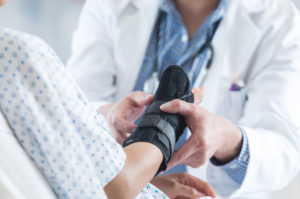At times, one wonders if the benefits of some medications outweigh the potential serious side effects. So it is with Invokana (Canagliflozin). But this is not a question posed by a lawyer blog, but by medical researchers who evaluate drug efficacy in the course of their business.
What is Invokana?
Invokana and its sister drug, Invokamet, are part of a class of drugs called SGLT2 Inhibitors. It is used as a treatment for Type 2 (adult onset) diabetes to reduce glucose levels in the blood stream. Invokamet is a preparation of the effective ingredient canagliflozin, combined with metforman. Other SGLT2 inhibitors are marketed under the names: Farxiga, Glyxambi, Jardiance, Xigduo XR, among others.
The drugs work by inhibiting the action of certain components of the kidney that normally return sugar to the bloodstream. Using the SGLT2 inhibitor, this component’s action is inhibited or suppressed, which causes substantial excretion of glucose into the urine and out of the body, thereby reducing blood glucose levels.
Regulatory Action
Invokana is licensed in the U.S. and marketed by Johnson & Johnson’s Janssen Pharmaceuticals division; the drug is manufactured by Mitsubishi Tanabe Pharma. The drug received U.S. Food and Drug Administration (FDA) approval March 29, 2013. Since approval, the FDA published Drug Safety Communications regarding Invokana on multiple occasions, adding and strengthening warnings on the preparation’s labels, within the first four years of use.
Among the warnings the FDA required are:
- 9/10/2015 – FDA requires warning regarding increased risk of bone fracture and decreased bone mineral density due to Invokana use
- 5/15/2015 – FDA requires addition of warning regarding increased risks of diabetic ketoacidosis, a condition which causes high acid levels in the bloodstream, and serious urinary tract infections
- 6/14/2016 – FDA strengthens warning of kidney injury due to use of Invokana
- 10/5/2016 – FDA requires addition of warning regarding acute pancreatitis
- 5/16/2017 – FDA requires addition of warning regarding increased risks of leg and foot amputation in patients who use canagliflozin medications Invokana and Invokamet
Clinical Studies
In May 2015, QuarterWatch, a pharmaceutical watchdog organization that independently monitors FDA Medwatch reports, published findings that showed very high levels of renal (kidney) failure, kidney stones, fluid and electrolyte issues, urinary tract infections, and weight loss among users of Canagliflozin. QuarterWatch found levels of complications from use of these drugs to be higher than 92% of the drugs they monitor and questioned whether the benefits of using the drug outweighed the risks, since clinical trials only indicated a lowering of HbA1c of ~1%.
On June 8, 2017, the New England Journal of Medicine (NEJM) published results of a study of a large population of U.S. patients. 50,000 patients who used SGLT2 inhibitors were evaluated, and the results showed the risk of ketoacidosis resulting in a hospital visit was twice as high within the first six months of use in patients who used SGLT2 inhibitors compared to patients who used DPP4 inhibitors, an alternate medication.
Lawsuits
There are, as of May 15, 2017, 288 cases at the federal court level pending regarding complications from use of Invokana. These cases have been consolidated into Multi-District Litigation under the case number MDL 2750. Federal judge, Brian R. Martinotti, in the district of New Jersey, hears current cases. Bellweather trials could begin as soon as September 2018.
See our discussion of MDL’s here.
Nevada Invokana Lawyers
The Richard Harris Law Firm is evaluating cases from those who have had complications from Invokana use. The cases stem from the manufacturer’s failure to warn users of the serious and sometimes fatal complications that can arise from the use of SGLT2 inhibitors.
If you were prescribed Invokana or Invokamet, and required hospital treatment for diabetic ketoacidosis, or suffered renal failure, urinary tract infection, heart attack, stroke, or amputation after use of the drug, call us today to discuss your case, at (702) 444-4444.





























